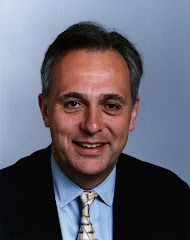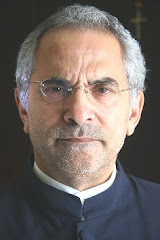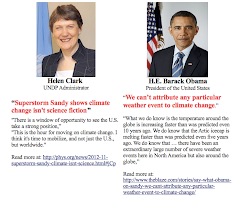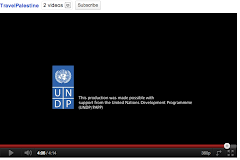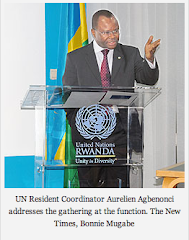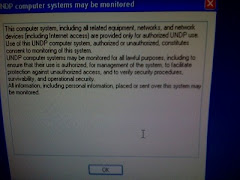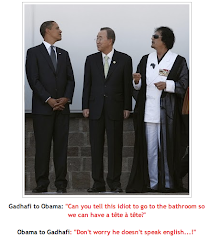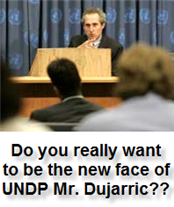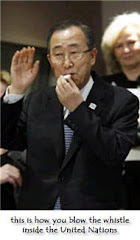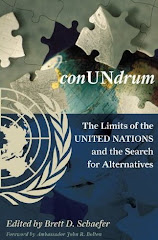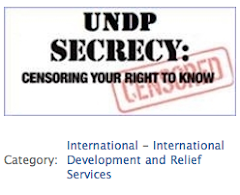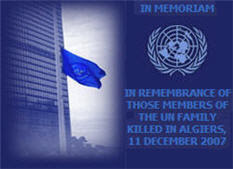
Posted By Colum Lynch Thursday, June 24, 2010 - 5:28 PM
John R. Bolton, the former U.S. ambassador to the United Nations, blasted U.N. Secretary-General Ban Ki-moon today for pressing ahead with an international probe into the Israeli commando raid on a flotilla carrying aid activists to Gaza. Bolton also appealed to the Obama administration to withhold U.S. funding to the organization until Ban backs down. "If he goes ahead and does this, why don't we withhold 20 percent of the U.S. share?," Bolton told Turtle Bay.
More than three years ago, Bolton played an important role in promoting Ban for the U.N.'s top spot. Today, he still says, "I thought it was the right thing to do." But he sharply criticized the former Korean foreign minister in his strongest terms ever in his interview with Turtle Bay and a Washington Times opinion piece for trying to set up an international inquiry into Israeli conduct without an explicit mandate from the U.N. Security Council.
"For Mr. Ban to act without express U.N. Security Council authorization, however, would far exceed his legitimate authority," Bolton wrote. "It would create a troubling precedent, with implications not just for Israel but for the United States, extending well beyond Israel's blockade of Gaza or the May 31 events. Nonetheless, President Obama has not moved decisively to quash the idea, and his inaction is understood in U.N. circles as implicitly consenting to Mr. Ban's illegitimate initiative."
The position taken by Bolton added an influential American conservative voice to Israel's efforts to convince Ban to back away from an international inquiry. Both Israel and the United States maintain that an Israeli inquiry -- involving two international observers -- is adequate to addressing international calls for a credible inquiry into the Memorial Day raid, which led to Israel's killing of nine aid activists who had violently resisted Israel's effort to forcefully seize control of the boat.
Following the raid, the Security Council issued a statement calling for "a prompt, impartial, credible and transparent investigation conforming to international standards." The Obama administration agreed to the text after eliminating language explicitly calling for an international probe. After the statement was adopted, the chief U.S. negotiator, Alejandro Wolff, said, "We are convinced and support an Israeli investigation as I called for in my statement earlier and have every confidence that Israel can conduct a credible and impartial, transparent, prompt investigation internally."
But Ban disagreed with the United States, telling reporters last week that key governments he is consulting believe the Israeli inquiry "is not sufficient enough to have international credibility." He said he would continue his efforts to convince Israel and Turkey to participate with an international panel probing the incident.
Bolton told Turtle Bay that Ban is "incredibly unwise" to pursue his investigation without the full support of the Security Council. He said Ban's approach to the Middle East has "evolved" in recent years, and reflects "a mood in New York, including the U.N. secretariat, which is growing steadily anti-Israeli." He said the Obama administration has behaved "duplicitously" by offering its public support for the Israel inquiry while failing to confront Ban. "Implicitly, they are going to let this happen," Bolton said. "We want to make it clear that we do not agree with what Ban is doing,"
A spokesman for Ban, Martin Nesirky, declined to respond to Bolton's article, saying only that the "former permanent representative of the United States is entitled to his opinion." But U.N. observers countered that Bolton was out of line with his criticism of Ban and the United States.
Jeffrey Laurenti, a U.N. analyst at the Century Foundation, said that "Bolton's strategy of non-payment to the U.N. had resulted in a crippled U.S. diplomacy in international organizations and elsewhere and that his own mercifully brief tenure at the U.N. was one marred by a record of negative achievements: that is blocking but not accomplishing."
Laurenti added, "It really is quite slanderous to charge the Secretary General with anti-semitism -- or anyone else -- for being critical of Israeli force."
"Bolton has long been closely allied with the most expansionist and retrograde elements in the Israeli security establishment, and one would be hard put to think of a single excessive [Israeli] move or action to which he has ever spoken critically," Laurenti said. The Obama administration, in contrast, "has been mindful of the outrage in much of the rest of the world. That's why they have muffled their opposition to the U.N. initiative in a way a more right-wing administration would not."
Click here to read story on Foreign Policy (http://turtlebay.foreignpolicy.com/)












